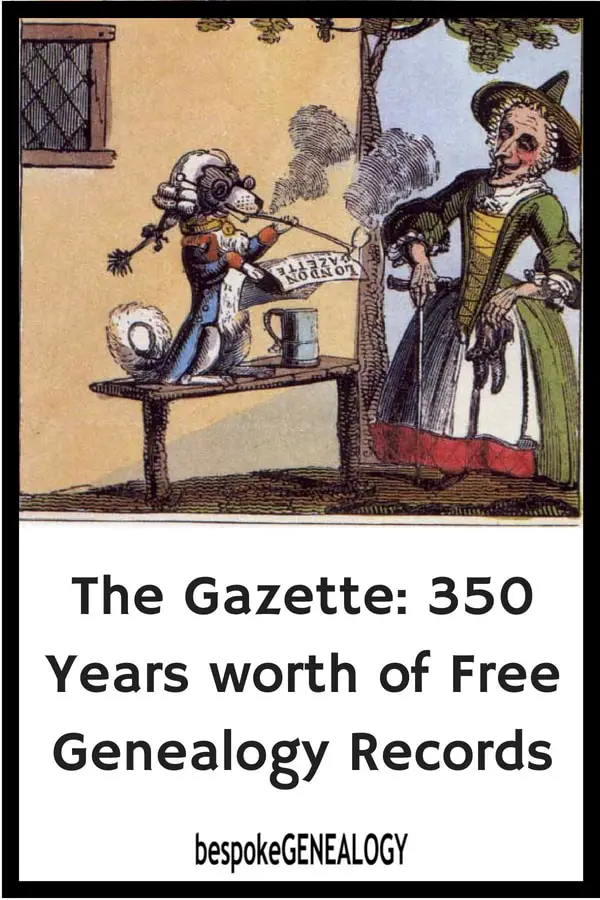
In this post I’m going to look at an amazing free British genealogy resource (as well as Irish records) that is often overlooked by family historians. It contains over 350 years worth of information, is all online and, it is completely free. I’m talking about The Gazette; the official British newspaper of record.
The Gazette is three publications; The London Gazette, covering England and Wales, published every weekday; The Edinburgh Gazette for Scotland, published on Tuesdays and Fridays; and The Belfast Gazette for Northern Ireland, published Fridays.
Until 1922 The Dublin Gazette covered the whole of the island of Ireland. It ceased publication when the southern counties became the independent Republic of Ireland. The province of Ulster remained in the United Kingdom so since 1922 the Belfast Gazette has been published.
See below for more information about the Dublin Gazette.
What the Gazette publishes
The Gazette is the official British government publication of record and is overseen by the National Archives. Editions are effectively archived as soon as they are published making every issue accessible online for free.
The content of an edition of The Gazette is made up of notices. These include:
- State and public sector notices such as Acts of Parliament being passed, official announcements, and the Queens honours
- Insolvency notices such as bankruptcy
- Personal legal notices, such as changes of name
- Company notices
In addition to the regular Gazette, special supplements are also published:
- Weekly military supplement
- Weekly Company Law Supplement
- Gazette Extraordinary. This is a special edition only published at times of national importance such as a declaration of war.
If you are not familiar with The Gazette, I recommend browsing through a recent edition to get an idea of the type of information published. From the main menu hover over “Notices” then select “Publications”. Or click here to go directly to the page. You can download a pdf copy of an issue.
Valuable information for the family historian
The Gazette is packed with very useful genealogical information going back to 1665. Here are some examples of what you can find:
Change of a person’s name
If you have an ancestor that has disappeared from records after a certain date, it may be because he or she has had a change of name. An official name change in Britain was done by Deed Poll which would have been recorded in The Gazette. Here is an example from 1938:
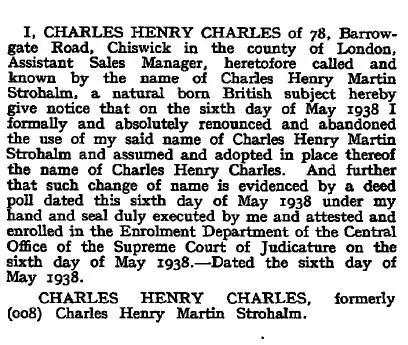
Change of Name
There could be a number of reasons why an individual would change their name, for example:
- A stipulation in a Will so that an inheritance could be claimed
- To avoid being labelled as a sympathizer of another country in times of war. For example, many people with German sounding names changed them in the run up to and during the two world wars. This could be why Mr Strohalm changed his name in the example.
- Immigrants or their descendents adopting more English sounding names as a result of discrimination.
- They didn’t like their names much
- To escape the public gaze after a scandal or a spell in prison
Lists of immigrants receiving Certificates of Naturalization
These lists contain the names of immigrants with the country they came from, occupations and addresses. Here is part of the list from 3 December 1920:

Naturalization List
Notices to Creditors
These are notices posted by solicitors requesting that any creditors of a deceased person contact them by a certain date. These notices give the name, address and date of death, useful if you can’t find the death record of someone. Here is an example from 1920:
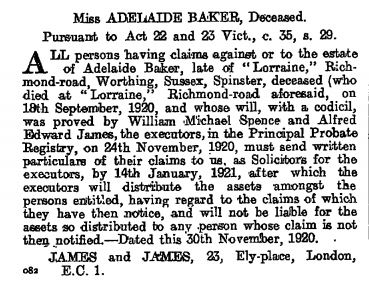
Notice to Creditors
Bankruptcy Notices
These notices usually give the name, address and occupation or business of the bankrupt. Here is an example from the same 1920 issue of Alfred Carpenter, Cycle Dealer and Repairer:
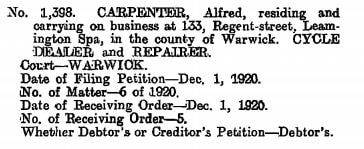
Bankruptcy Notice
Next of Kin Notices
If someone died without making a will and without an obvious close relative (like a spouse) and had some sort of estate (even if it was just a bit of money in the bank), a Next of Kin notice may have been posted in The Gazette. Here is an example from the 3 May 1966 issue:
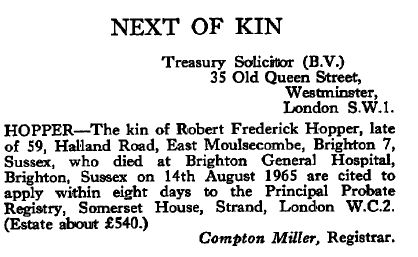
Next of Kin Notice
Mr Robert Hopper has left an estate worth about GBP540. It gives his address and date of death.
Military Awards
The Gazette’s weekly military supplement gives details of medals awarded to servicemen. This is especially useful during the First World War period as most service records were destroyed during the London blitz of the Second World War. So if your ancestor was in the British army 1914-20, these medal lists may be the only record of him serving.
Here is an example from 1 April 1920:
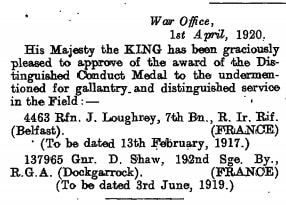
Military Awards
These records give the service number of the individual, rank, name (sadly the first name is not given, only an initial) and their battalion.
Searching
Searching is relatively straightforward, although there are a couple of things that might trip you up. Firstly, you need to go to “Notices” then “All Notices” to find the search field. To search for a specific person put the name in quotes, eg “John Smith”. Remember that if you are searching for a medal record, the first name is not recorded, only an initial, so you would have to search for “J Smith”.
You can narrow the search a bit by using some of the other fields. Note that the “Notice Type” and “Notice Code” options do not work for records before 1998. So leave the “Notice Type” field set at “Show All” and the “Notice Code” as blank. A location and a date range can be specified as well as the edition (London, Edinburgh or Belfast).
More information about searching The Gazette can be found here.
The Dublin Gazette
As I mentioned above, The Dublin Gazette existed until Irish independence in 1922. Unfortunately, this publication is not available on The Gazette’s website as the archives passed to the Irish Government. However, scanned copies of bound volumes from the 1750s to 1800 are available online with free access on the Irish Parliament’s Oireachtas Library website. These volumes are not searchable, so you can only browse; therefore having a date range to focus on is advisable.
The Origins of The Gazette
“Fake news” is not a modern phenomenon; in 17th century England, the development of printing technology led to the mass circulation of newspapers and pamphlets. The contents of these publications were often just unsubstantiated rumours which then led the government to impose strict censorship on the press. The outbreak of the plague in 1665 brought matters to ahead as there wasn’t a source of reliable information.
The publication first appeared on 7 November 1665 as The Oxford Gazette. The court of King Charles II had relocated temporarily to escape the disease ravaged capital. You can find the first edition here. The Court moved back to London the following year and the first edition of the London Gazette appeared on 1 February 1666.
More information about the history of The Gazette with a timeline and links to editions recording key events can be found here.
Happy researching!
Click edit button to change this text.
For further reading on British genealogy, you may find these books helpful:
More genealogy books can be found in the Resources section of this website.
Please see the Genealogy Blog for more family history posts.
Please pin a pin to Pinterest:
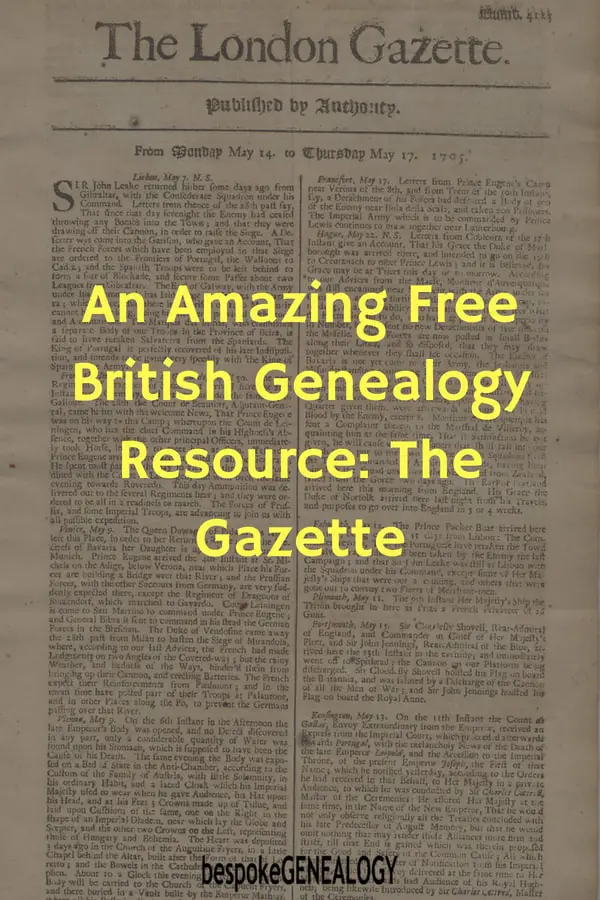

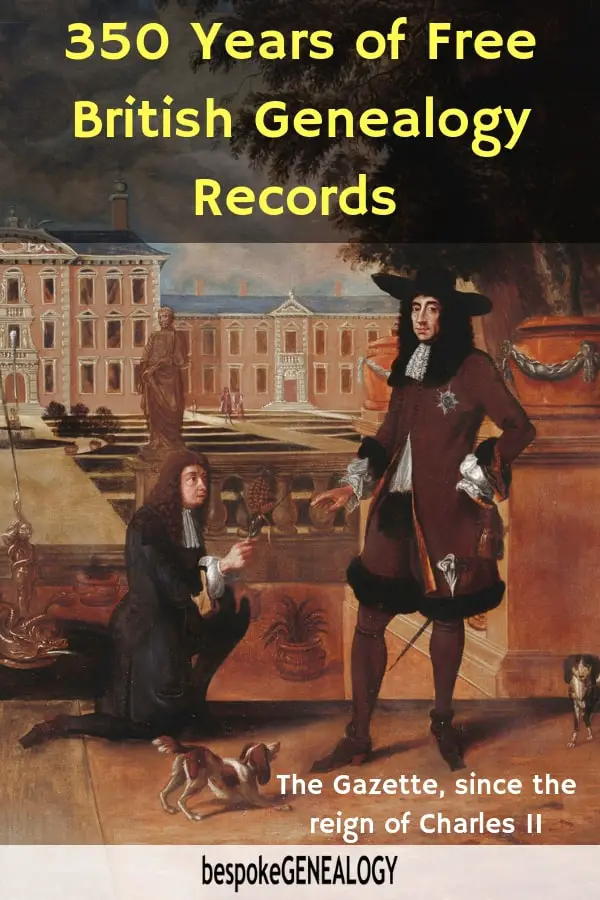
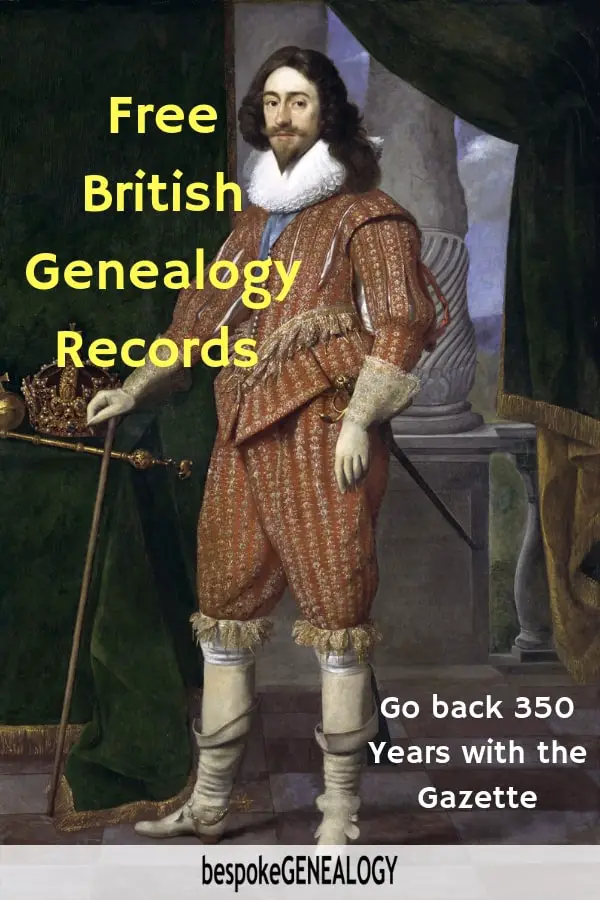
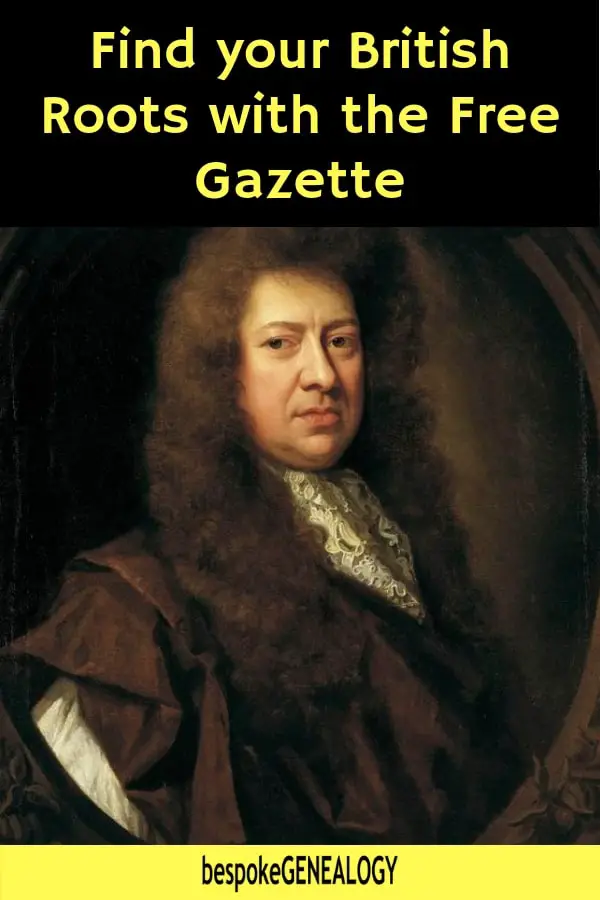
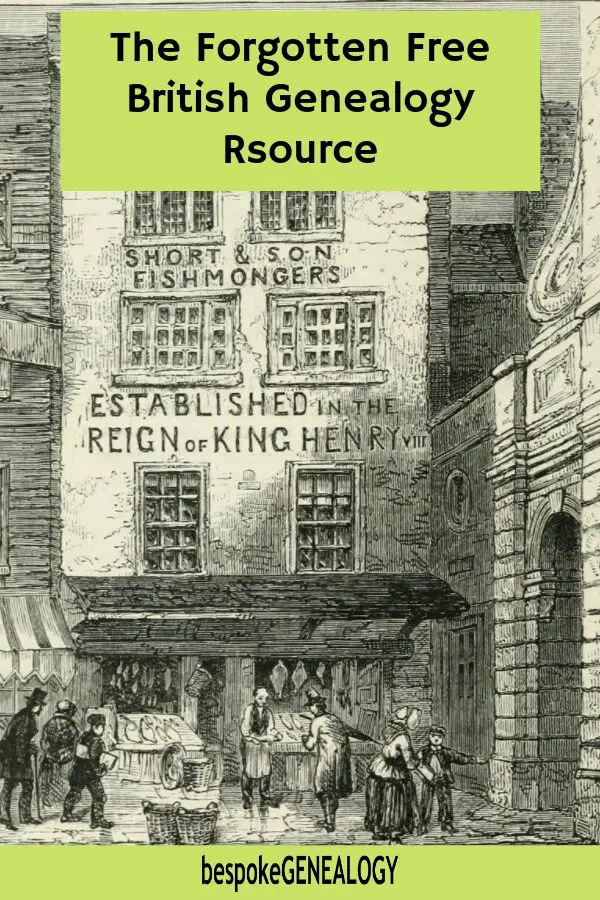
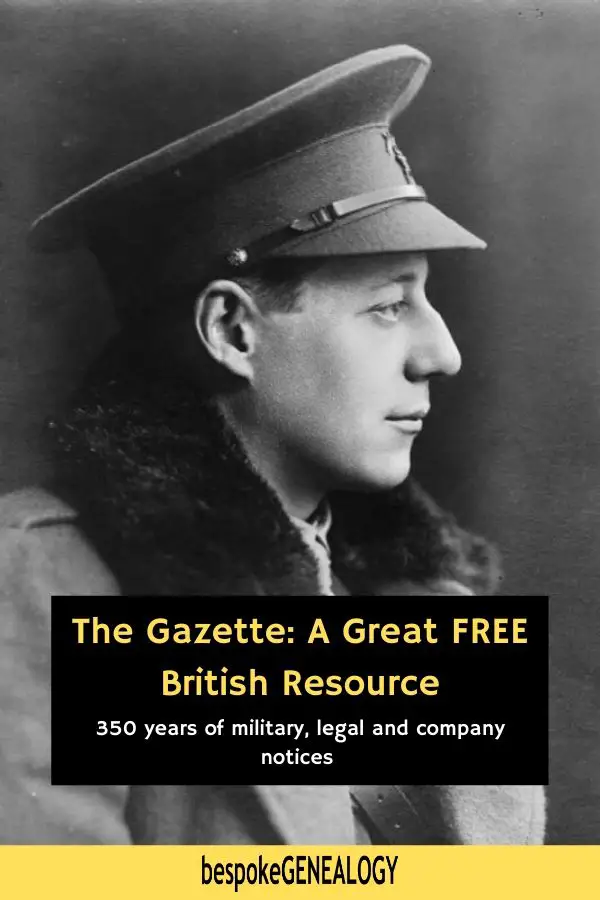
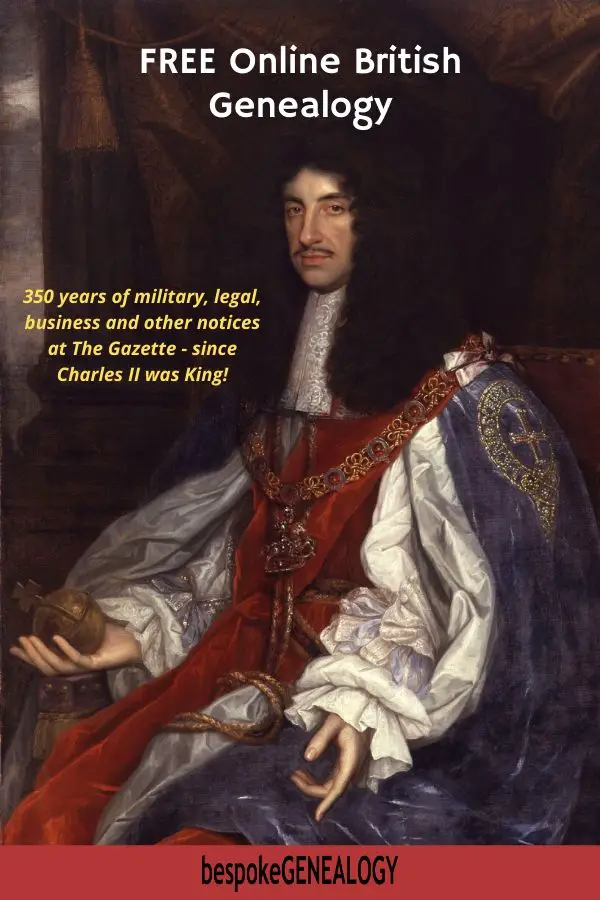
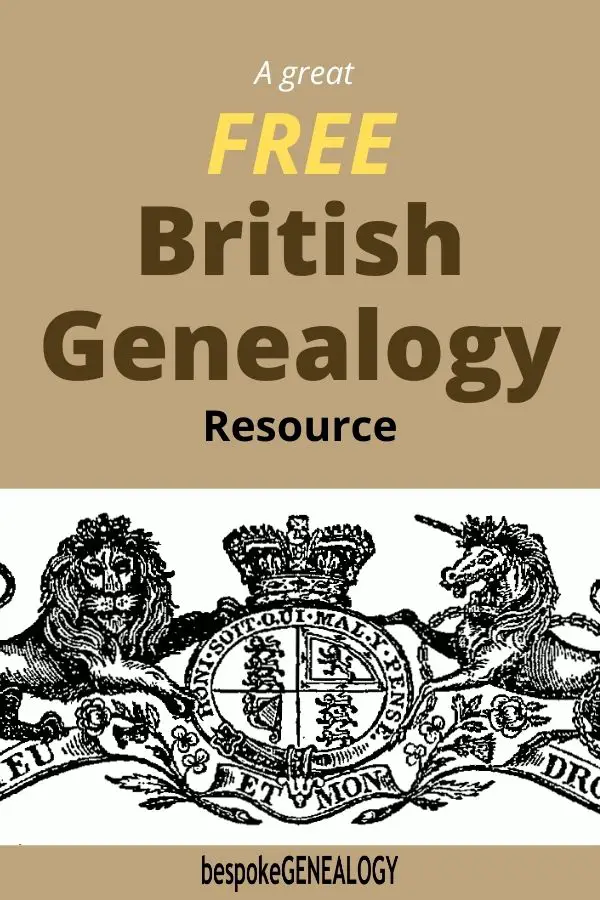
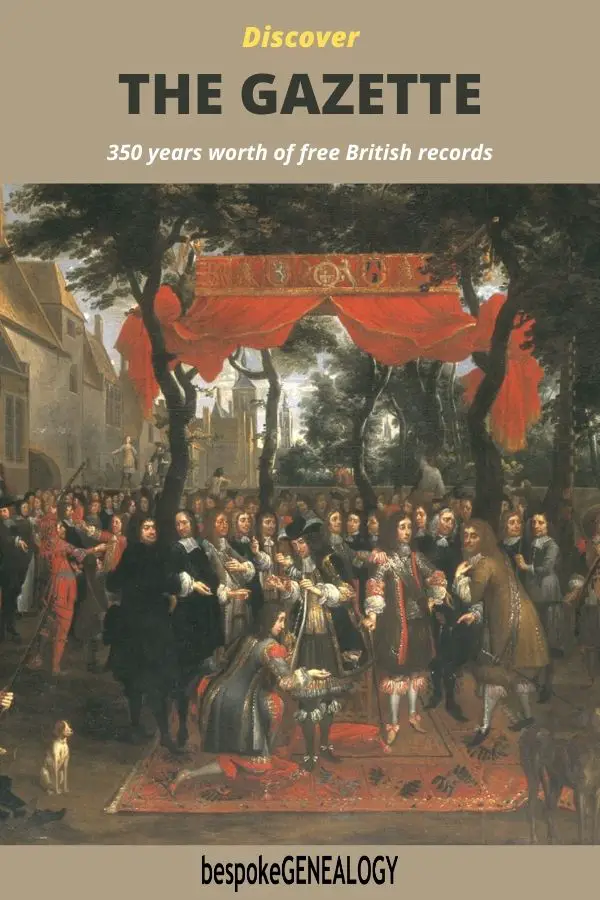
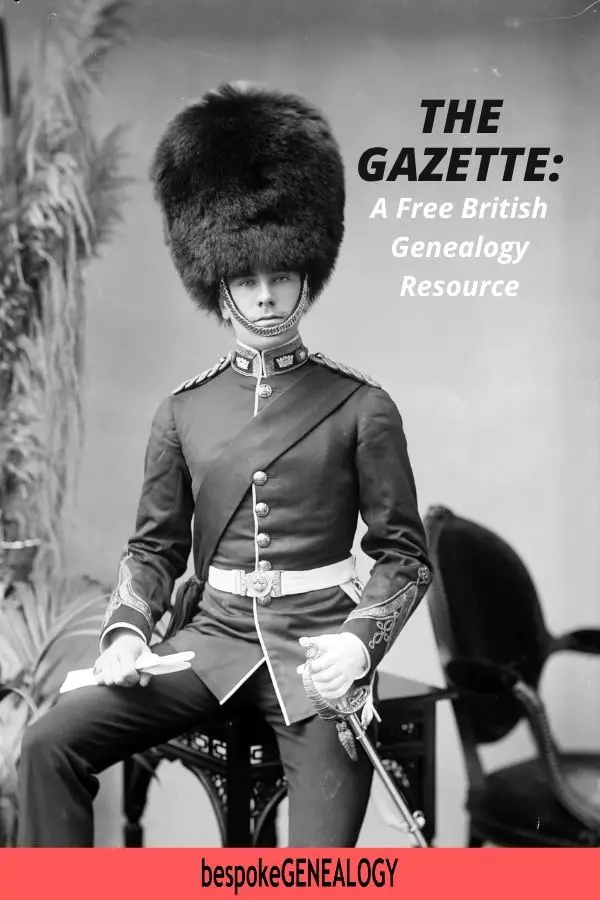
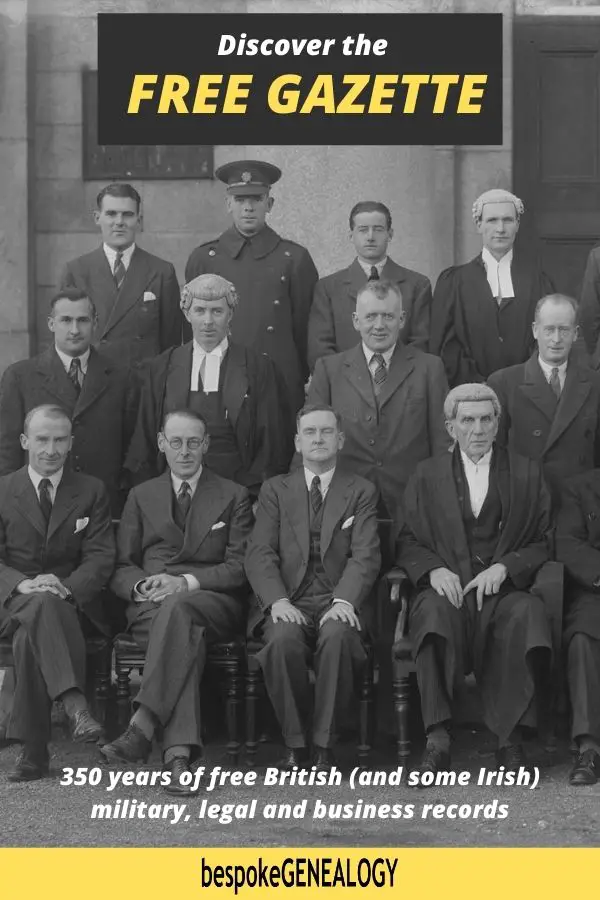
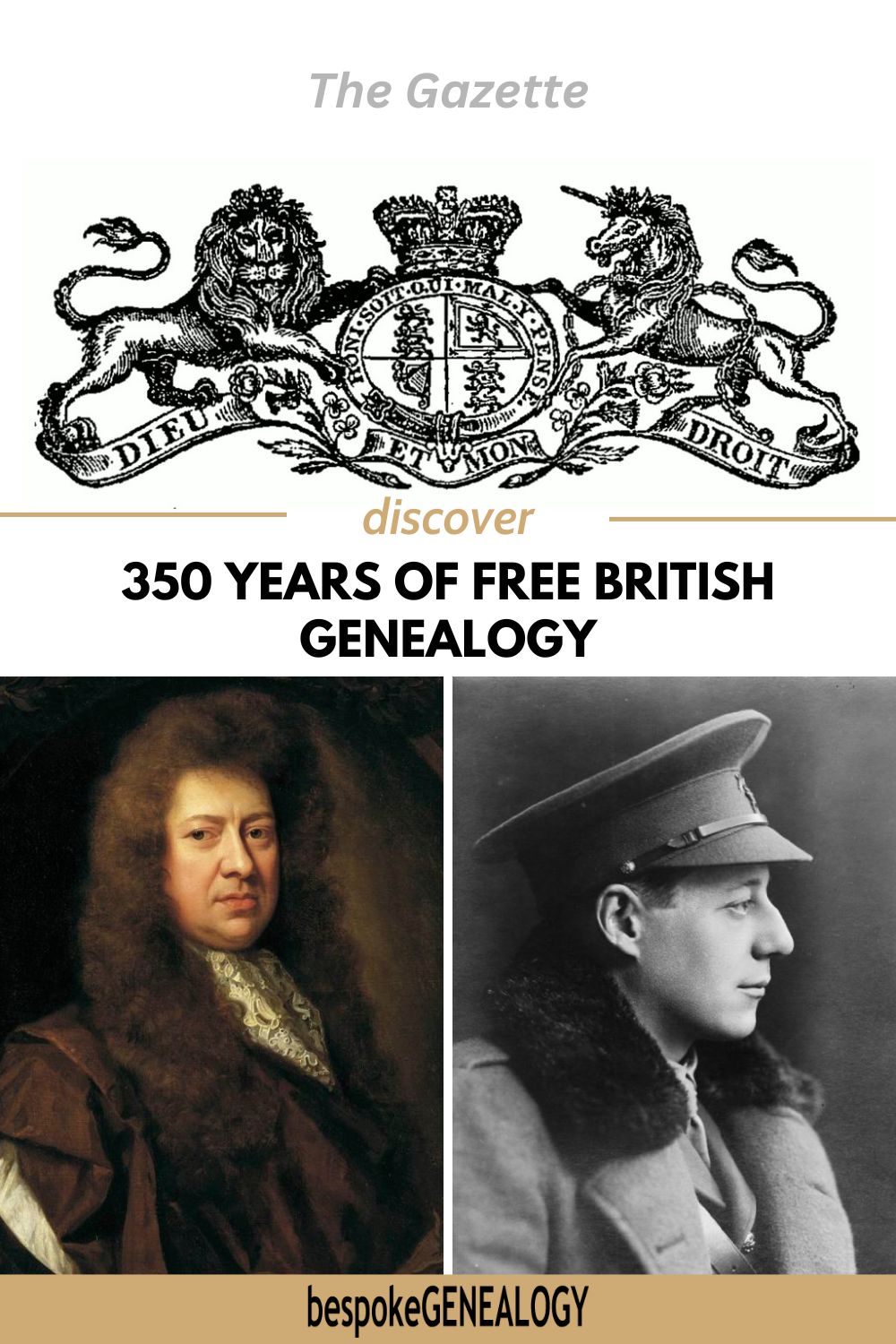

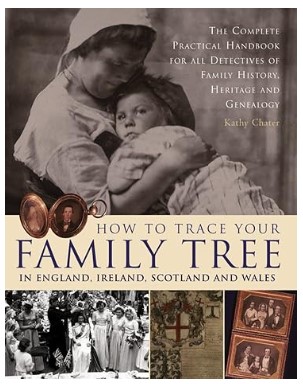
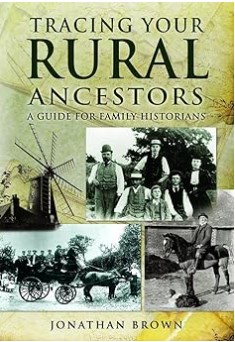
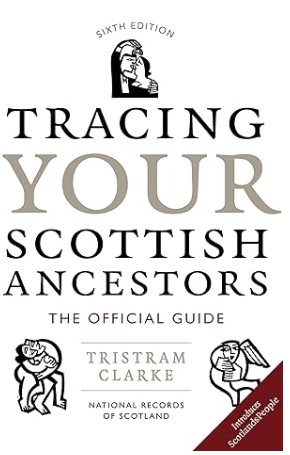
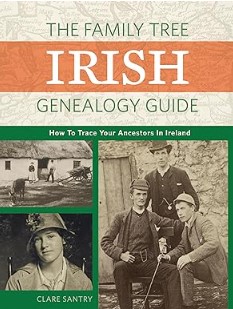
Am looking for any relatives of Philip Beckerman, born in Manchester. I think He was born there of father, Charles who might have been a Cantor.
If you are looking for living relatives, have you tried Lost Cousins?: https://www.lostcousins.com/ It’s free to set up an account.
Good luck!
I am looking for how to connect a tree with ancestry.
Only the latest version (2017) of Family Tree Maker syncs with Ancestry. If you have an earlier version, you’ll need to upgrade. If you have the 2017 version there are instructions here: https://www.familytreemaker.com/aboutsync.html. If you are having problems, you’ll need to contact FTM support: https://familytreemakersupport.com/ . Hope this helps